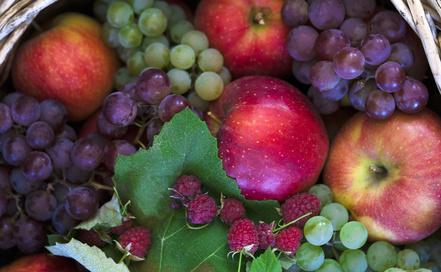 It’s important to take food safety seriously all the time, and extra vigilance in the summer may be necessary as foodborne illnesses increase during the warmer months. This increase may be due to increased outdoor activities and the warmer temperatures, which reduce the amount of time foods are in a safe temperature zone.
It’s important to take food safety seriously all the time, and extra vigilance in the summer may be necessary as foodborne illnesses increase during the warmer months. This increase may be due to increased outdoor activities and the warmer temperatures, which reduce the amount of time foods are in a safe temperature zone.
When you’re outside during the summer, be mindful of these tips:
- Keep hot food hot and cold food cold. When serving food at a summer picnic, don’t leave it at room temperature for more than two hours. Between the temperatures of 41○F to 135○F is considered the Bacteria Danger Zone, where bacteria multiply rapidly. Consider setting cold foods’ serving dishes on ice while serving, and rapidly chill hot and cold food when you’re done eating in order to keep food safely out of the Danger Zone.
- “When in doubt, throw it out.” If you suspect that a food may have been in the Bacteria Danger Zone for more than two hours, throw it out. Although it is certainly a bummer to feel like you’re wasting food, it is most certainly a BIGGER bummer to become violently ill.
- When planning a BBQ, keep raw meats separated from other foods like fruits, vegetables, and grains that have already been cooked or will be eaten raw. This separation prevents cross contamination between uncooked meats and fully prepared foods.
- Pack coolers fully, since full coolers stay cold longer than partially-filled coolers. Pack any remaining space in the cooler with ice. Freeze water bottles to fill up the cooler and have cold drinks later. You can also pack separate coolers for drinks and food, so if the drinks cooler is opened frequently, the food in the food cooler still stays chilled.
- To thaw frozen meat and poultry, place them in the refrigerator the night before, or in a sealed plastic bag in cold water. If you are going to cook them immediately, use your microwave.
- Going camping? Try some of these shelf-stable foods when on a multi-day hike where keeping food safe becomes more challenging.
- peanut butter
- juice boxes
- canned tuna, ham, chicken, and beef
- dried noodles and soups
- beef jerky and dried meats
- dehydrated foods
- dried fruits and nuts
- powdered milk and fruit drinks
Fun times abound during the summer months, pay attention to food safety so you can enjoy every minute!
Contributor
Lizzy Pope, PhD, Cornell University
Source
Food Safety, U.S. Department of Health & Human Services
